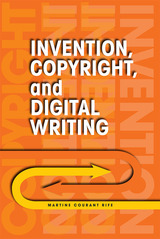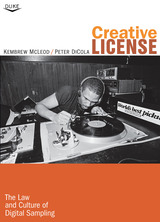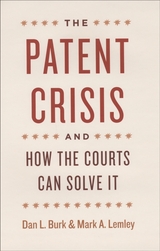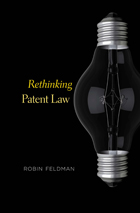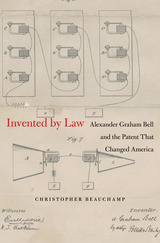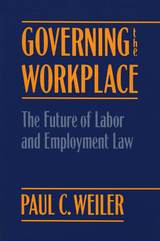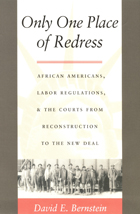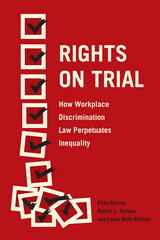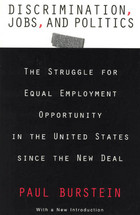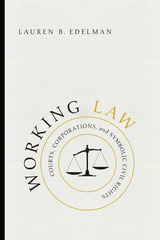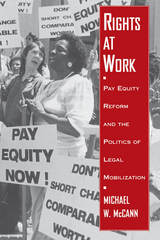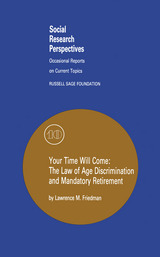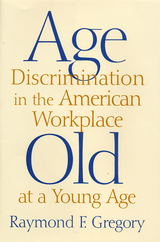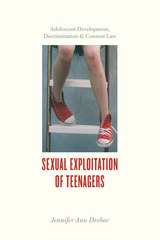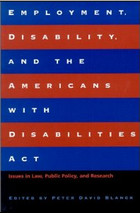Over the past decade Cass Sunstein has emerged as one of the country’s most prolific and provocative legal scholars. After the Rights Revolution is a rich discussion of how the courts have handled—and should handle—the plethora of regulatory statutes enacted since 1932. It deserves to be read widely by students of politics.
-- R. Shep Melnick Political Science Quarterly
Cass Sunstein’s After the Rights Revolution is the best attempt I have encountered to theoretically formulate a standard for the new ‘rights.’ Because it is so elegantly argued and so well written, it deserves considerable attention.
-- Alan Stone Policy Studies Journal
We all need help finding our way around the American administrative state. An important guidebook has now arrived. The publication of Cass Sunstein’s After the Rights Revolution is a significant event for those interested in administrative law and regulation, as well as for those concerned with the theory of legal interpretation.
-- Ronald F. Wright Yale Law Journal
The analysis of statutory interpretation is the book’s finest achievement. Sunstein launches a brilliant and devastating critique of interpretive theories which hold that interpretation should be a function solely of statutory text or legislative intent, and which reject any role for background norms or controversial public policy views.
-- Richard B. Stewart California Law Review
This century has seen a ‘rights’ revolution, says [Sunstein]: In addition to their traditional freedoms, Americans now have a right to clean air and safe consumer products, for example. Moreover, he argues, these rights, indispensable in a modern industrial democracy, are better protected by government regulation than by private enterprise. Thinking of the deregulation-inspired Savings & Loan debacle, the reader may agree. Despite the many failures and even tyranny of government regulatory schemes, constitutional government and regulatory legislation are compatible, says Sunstein, who offers recommendations for improving the constitutional underpinnings of regulatory schemes and minimizing the dangers of bureaucratic government. This book gives regulatory law a legitimacy it seldom receives in American legal theory and political science.
-- Rex Bossert California Lawyer
Cass Sunstein sets out not to bury regulation, but to save it—to save it from both its friends and its enemies. He seeks to make the regulatory state more legitimate and effective by creating a set of norms for judicial review of regulatory statutes and administrative actions, norms that emphasize efficiency and consistency and—most of all—democratic deliberation and equality.
-- Dennis J. Coyle Law and Politics Book Review
If the size and ambition of our government are not mistakes—and Sunstein makes that case well—then we need to address its works in ways that both enhance its opportunities for success, and promise restraints on its power. After the Rights Revolution is an important effort in that direction.
-- Peter L. Strauss Michigan Law Review
After the Rights Revolution is a thoughtful and compelling analysis of the United States welfare state and the role of courts in modern government. Sunstein argues that it is the deliberate process of government and its potential for political actors to engage in emphatic dialogue with other participants which gives democracy its emancipatory potential.
-- Patrick Keyzer Sydney Law Review
In this provocative and lively book, Sunstein argues that the Reagan adminstration’s vigorous attack on government regulation was misplaced, contending that government regulation is superior to the behavior of private markets… Sunstein thus offers a spirited defense of the ‘rights revolution’ embodied in the new social and economic regulation—from clean air and water to antidiscrimination rules—that have swept government since the New Deal, and especially since the 1960s… The result is a careful, prescriptive study positioned among theorists’ visions of justice, laywers’ concepts of due process, and politicians’ imperatives for effective policy.
-- American Library Association
Sunstein calls on courts, and the rest of us, to redeem the promise of the New Deal and Great Society. A splendid statement of the role that law can play in building a more progressive America.
-- Bruce A. Ackerman, Sterling Professor of Law and Political Science, Yale Law School
Professor Sunstein makes use of an impressive range of materials and applies to them some considerable wisdom and good judgment. After the Rights Revolution is an important statement for the 1990s.
-- Steven Kelman, Professor of Public Policy, Kennedy School of Government at Harvard University
Sunstein should be required reading on everybody’s list of public affairs books. It’s already on mine, for my undergraduate as well as graduate students. The analysis is rigorous, the message is clear. The book provides the defense of regulation we have needed during the laissez-faire era. Yet it gives little comfort to knee-jerk regulators. In other words, it makes a great target for folks of every persuasion.
-- Theodore J. Lowi, John L. Senior Professor of American Institutions, Cornell University
After the Rights Revolution is a powerful and provocative rethinking of regulatory jurisprudence. Cass Sunstein provides an illuminating review of how and why regulation succeeds and fails. He then offers new canons of construction that judges should use to interpret regulatory statutes in the public interest. This stimulating book is essential reading for public law and regulatory government.
-- Richard B. Stewart, Assistant Attorney General, United States Department of Justice


